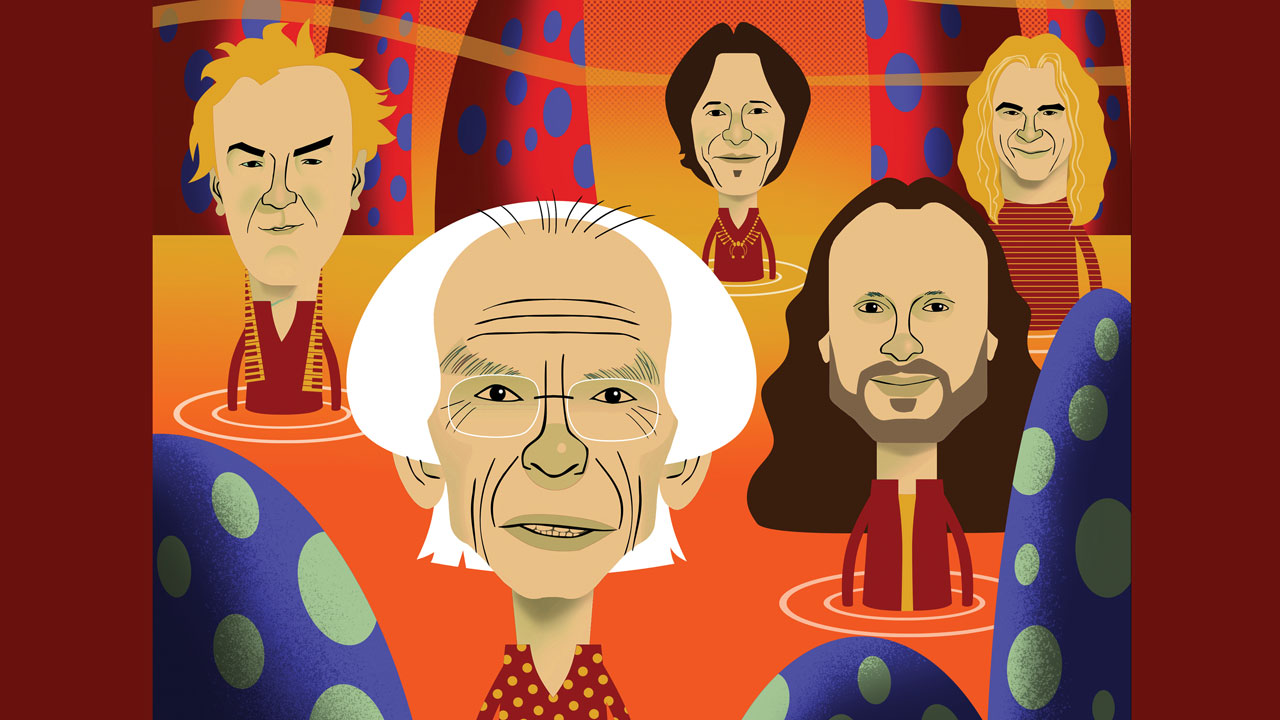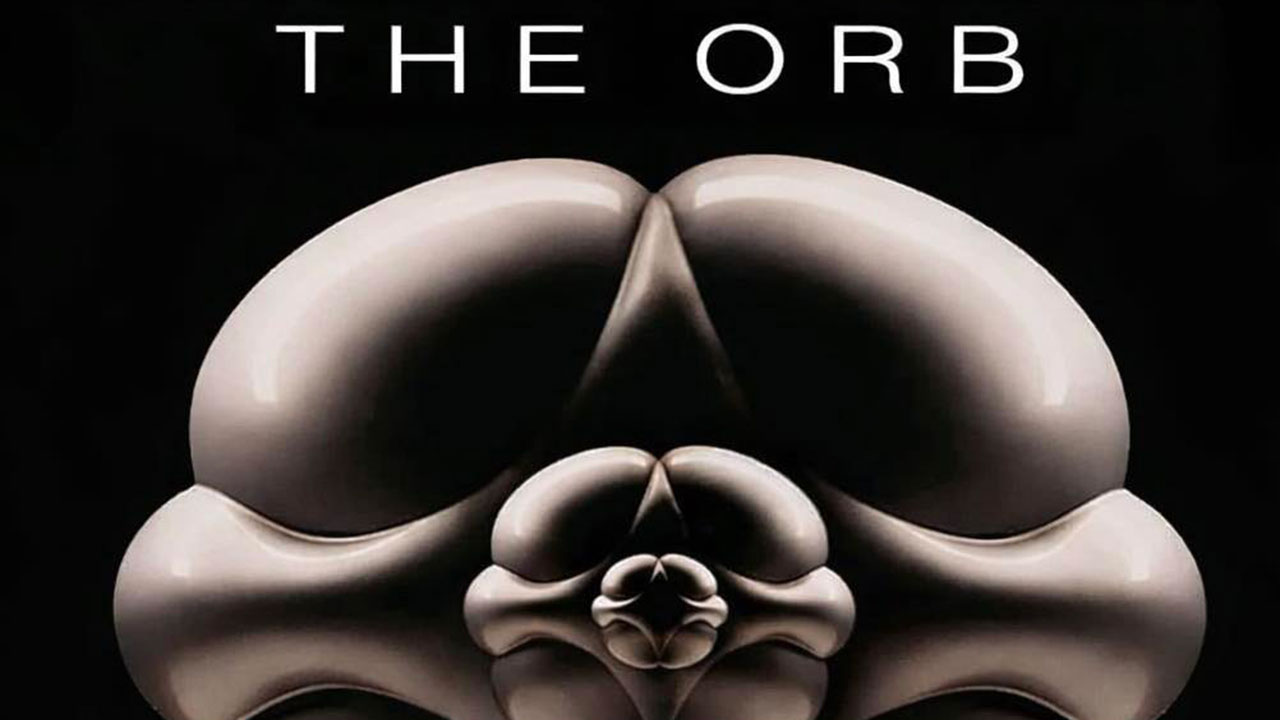
With every studio recording, live album or tour announcement, there’s always a faction of fans who will turn up on a corner of the internet waving their ‘No Jon Anderson, No Yes’ banners. Their zeal is only matched by the nearby counter-demonstration shaking their ‘No Peter Banks, No Yes’ placards.
But time and events have moved on and maybe the ‘No Anderson’ contingent should too. In the aftermath of the singer’s unceremonious departure 15 years ago, we’ve since lost Chris Squire and Alan White, a stark reminder, should it be needed, that life is really too short to spend time grinding gears over something we have no control over. Rather than exercising well-worn prejudices and allowing expectations to become self-fulfilling prophecies, isn’t it better to approach a new album with an open mind?
If 2021’s The Quest represented a return to some kind of form after the bland torpor of 2014’s Heaven & Earth, Mirror To The Sky feels like another useful step forward in Yes’ apparently never-ending story. There’s a good reason they released Cut From The Stars as a digital single ahead of the album: it has more hooks in it than an angler’s bag. With a cascading string motif; vibrant rays of organ; spiky, undulating bass; bubbling guitars; dead-ahead drumming and ecstatic skipping vocals, it moves with determined energy and purpose. Setting out the stall of a band that have now been fully rejuvenated with the installation of drummer Jay Schellen, it’s a track that has urgency and power in abundance. Or, to put it another way, it fucking rocks.
Those catchy qualities continue with All Connected – its expansive feel seamlessly unrolls from one section to another, making the musical connectivity work with consummate ease. While taking disparate elements and welding them into something functional and cohesive is pretty much what Yes are best known for, there’s an argument that it’s not been done as elegantly as this for quite some time. If the chorus of Luminosity sounds, at times, like it might have been rejected by the local Christian Fellowship for being too happy-clappy, it’s at least bookended with an engagingly upbeat arrangement. The same cannot be said for the plodding dreariness of Living Out Their Dream, an unimaginative rocker whose by-the-numbers presence here is baffling.
That lapse of judgement is mercifully brief and the title track restores momentum. The piece showcases orchestral embellishments by Paul K Joyce, whose work also graced The Quest. Mid-tempo rather than magisterial, it nevertheless works well, with ethereal violin harmonics adding a chilly trail in the wake of Howe’s contemplative fretwork. The guitarist’s soloing throughout the track is especially good. At 75 years old he might have slowed down in comparison to the flash of his youth, but he demonstrates the wisdom of knowing that, in this case, a leaner, cleaner melodicism will serve the song all the better. As principal soloist and producer, Howe is ultimately free to overdub as many guitars onto a track as he sees fit without fear of anyone telling him otherwise, yet here he opts for a restrained approach that benefits the album overall.
Yes’ internecine politics in the past have sometimes reduced the album-making process into a passive-aggressive grudge match, wherein the band are only able to work at the speed of the unhappiest member. By contrast, this line-up has publicly stated that the spirit of cooperation and mutual support evident during The Quest has continued to flourish. Though it’s hard to objectively quantify, there’s a sense that everyone being on the same page has brought optimism and coherence to the music. Jon Davison’s charming ballad Circles Of Time, which gently closes the album, though delicate on the surface, comes with a real inner strength that’s due to the simplicity of its arrangement and uncluttered sureness of its production.
As with The Quest, this album also comes with a three-track bonus disc. The best of these is the middling Unknown Place. With its Hammond organ wig-out and solo cowbell section it seems designed to provide some clap-along crowd participation when Yes next get back on the road.
Sign up below to get the latest from Prog, plus exclusive special offers, direct to your inbox!
The long tail of Yes’ inventiveness during the 1970s burns so intensely to this day that it’s inevitable that the current band will likely always be judged against those past glories. While Mirror To The Sky doesn’t scale those early innovative heights and is unlikely to change the musical weather in the way the band once did, when judged on its own merits, this is a set that stands as the best Yes album in more than 20 years. Maybe it’s time to put down the placards and listen.
This review originally appeared in Prog issue 140.
Sid's feature articles and reviews have appeared in numerous publications including Prog, Classic Rock, Record Collector, Q, Mojo and Uncut. A full-time freelance writer with hundreds of sleevenotes and essays for both indie and major record labels to his credit, his book, In The Court Of King Crimson, an acclaimed biography of King Crimson, was substantially revised and expanded in 2019 to coincide with the band’s 50th Anniversary. Alongside appearances on radio and TV, he has lectured on jazz and progressive music in the UK and Europe.
A resident of Whitley Bay in north-east England, he spends far too much time posting photographs of LPs he's listening to on Twitter and Facebook.


